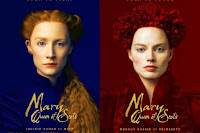Nostalgia isn't what is used to be.
Not my line - but Bill Bailey's. It conveys a good point though, which is the nature of nostalgia has changed. Even in my lifetime I've seen it. I'm sure nostalgia used to be far less all-consuming. Sure there were always people who loved Star Wars, but they didn't seem to be everywhere all the time. Possibly it's the rise of the internet allowing disparate dedicated groups of followers to congregate and achieve a greater volume than they otherwise would have? Perhaps the rise of all-access media has made it easier than ever for people to relive childhood memories (if you wanted to re-watch your favourite film when I was 10, you had to wait for it to be broadcast on TV - no Amazon Prime!).
I only realised that Back to the Future was a serious player in the plethora of field of nostalgic throw-backery when Secret Cinema put on a show and people lost their shit. I remember Back to the Future, as a nerdy kid growing up in the 1980s, being interested in physics and wondering in awe about the possibilities of time travel, I loved it. And the second one, and the third. I still remember going to see Back to the Future 2 at Ilford Odeon, it's a wonderful memory. The power of nostalgia is strong. But the question always remains - was it actually any good? Like - actually?
I always have a temptation to look dimly upon the cultural works that have been marked out for the platinum standard nostalgia treatment. But having watched the film again 2 weekends ago for the first time in more than a decade - Back to the Future is very (very) good. It's actually fairly difficult to find anything bad to say about it.
You will of course know the plot. Michael J Fox is Marty McFly, who is accidentally sent 30 years into the past after his crazy scientist friend Doc Brown (Christopher Lloyd) is shot by terrorists. McFly must then work with the younger Doc Brown to work out how to send himself back to the future, while at the same time trying to ward off the affections of his own mother (presently a teenager) and convincing her to check out the nerdy guy in the corner (who happens to be his dad).
It's tightly-scripted, full of attention to detail, well-scored and snappily edited with hardly one scene out of place. Fox and Lloyd are perfectly cast, and though much has been made of Fox's non-teen age when making the film, he was only 23 at the time - hardly outside of the usual bell curve for portrayal of teenage roles on screen. There are multiple escalating and overlapping plot threads, but they never get tied up or step on each others' toes. The plots then come together seamlessly with a prom night will-the-wont-they, leading straight into a nail-biting race against the clock to send Marty home and then a joyous denouement as all the things Marty got up to in 1955 feed into and subtly alter the present. Aside from the usual 1980s issue of terribly-aged outfits and awful hair (so awful), there is nothing bad to say. Prove me wrong. I dare you.
And we haven't even talked about the DeLorean. Chosen to be the vehicle for Doc Brown's time machine precisely because it was such an instantly recognisably flop, the cultural impact of Back to the Future is now such that it's a classic car with a following all around the world. Culture innit!
So I take my hat off and tip it with respect - Back to the Future is a film fully-deserving of its place at the forefront of the world's nostalgiagasm. Well played Robert Zemeckis; well played.










